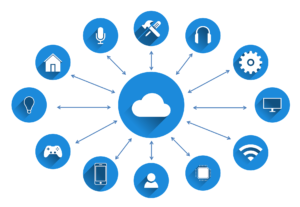Microsoft Dynamics 365 platform uses different license types which are priced differently. This posts explains these different types, especially in connection with the ERP (enterprise resource planning) components of the platform. Knowing different license types can help reduce license costs and increase efficiency and effectiveness.
1. Base
This license type is the main license that a User requires to begin working in the system. For example, if a new accountant is hired to work in D365F, this User is going to require D365F Base license.
2. Attach
This is an additional license that is available to Base license holders. An Attach license costs less than a Base license. Therefore, if a User’s role has grown to require not only a D365F, but also D365SCM license, the latter can be purchased as an Attach license at a lower cost.
3. Team Member
In a nutshell, a Team Member license is a read-only license type. It can be assigned to Users who, for example, only need to submit their expenses and get an approval in the ERP system (e.g. general staff), run financial reports (e.g. managers), generate and send a Sales Quote (sales team member), etc. This license costs less than Base or Attach licenses.
4. D365F and D365SCM
D365F and D365SCM licenses supplement each other enabling a person to use the ERP system to a full extent. For example, if a controller is required to maintain the Chart of Accounts and manage certain Production Orders (this is a somewhat unlikely scenario and it is only mentioned here for illustrative purposes), this User is going to require both these licenses. One can be purchased a Base license and the other one as an Attach license.
5. D365BC
Companies that have selected D365BC as their ERP system have two choices when it comes to full licenses: Essentials and Premium. The former gives access to all the areas of the system, except Manufacturing and Service Management; the latter gives access to all the areas, including Manufacturing and Service Management.
Note that it is possible to mix and match Team Member license with any other license type (e.g. Essentials or Premium), but Essentials and Premium license types can not be combined in the same Environment. This means, for example, that if your company uses Manufacturing, all Users (except Team Members) must have a Premium licence, even if the do not use Manufacturing (e.g. accountants).
6. External Accountant
Deployment of D365BC entitles companies to up to 3 External Accountant licenses. These licenses come at no additional cost and allow Users to do the tasks comparable to those of a fully licensed User, except administrative functions, such as User management. The access level of an External Accountant license holder can be further restricted with the help of Permissions. External Accountant licenses are typically used by auditors and outsourced accountants.
7. Students, Faculty, Nonprofit
All the aforementioned license types are available at a discounted rate to the following categories of Users: students, faculty members and nonprofit organizations. Users like this must be recognized as such by Microsoft, for which a proof may be required.
If you would like to learn not only about the different types of Dynamics 365 ERP licenses, but also confirm which ones are optimal for your team and discuss how your organization can save on licenses, contact us.


